[amended by Act 22 of 2001, with effect from the 10th September, 2002]
Acts 34/I985, 8/1988 (s. 164), 18/1989 (s. 39), 11/1991 (s. 28), 22/1992 (s. 16), 15/1994, 22/2001, 2/2002, 14/2002.
PART II
PREVENTION OF CORRUPTION
3 Corrupt practices
(1) If—
(a) any agent corruptly solicits or accepts or obtains, or agrees to accept
or attempts to obtain, from any person a gift or consideration for himself or any other person as an inducement or reward—
(i) for doing or not doing, or for having done or not done, any act in
relation to his principal’s affairs or business; or
(ii) for showing or not showing, or for having shown or not shown, favour or disfavour to any person or thing in relation to his principal’s affairs or business;
(b) or any person corruptly gives or agrees to give or offers any gift or
consideration to any agent for himself or any other person as an inducement or reward—
(i) for doing or not doing, or for having done or not done, any act in relation to his principal’s affairs or business; or
(ii) for showing or not showing, or for having shown or not shown, favour
or disfavour to any person or thing in relation to his principal’s affairs or business; (c) or any—
(i) agent, with intent to deceive his principal, uses; or
(ii) person, with intent to deceive the agent’s principal, gives to an agent;
any receipt, account or other record in respect of which the principal is interested and which contains a statement that is false or erroneous or defective in a
material particular; or
(d) any agent, by arrangement with any seller of goods or with any person engaging to render any services, secretly obtains any gift or consideration for himself
or for any other person in connection with his principal’s affairs or business; or
(e) any seller of goods, or any person offering his services, secretly offers any gift or consideration to an agent for himself or for any other person in regard to
the sale of the goods or to the employment of his services in connection with the
affairs or business of the agent’s principal; or
( f ) any agent, with intent to deceive his principal or to obtain any gift or consideration for himself or any other person, fails to disclose to his principal the full nature of any transaction carried out in connection with his principal’s affairs orbusiness;
he shall be guilty of an offence.
(2) Any person who is guilty of an offence in terms of subsection (1) shall be liable to—
(a) a fine not exceeding three times the value of the gift or consideration concerned or level fourteen ,whichever is the greater; or
[amended by Act 22 of 2001, with effect from the 10th September, 2002]
(b) imprisonment for a period not exceeding twenty years; or to both such fine and such imprisonment.
(3) Where a court has convicted a person of an offence in terms of subsection (1) and does not exercise its powers in terms of section 62 of the Criminal Procedure and
Evidence Act [Chapter 9:07] to declare any gift or consideration unlawfully obtained by the convicted person to be forfeited to the State, the court may, in addition to passing sentence, give summary judgment in favour of the convicted person’s principal or former principal for an amount equal to the value of any such gift or consideration, together with any interest that may have accrued thereon.
(4) A judgment given in terms of subsection (3) shall have the same effect and may be executed in the same manner as if the judgment had been given in a civil action instituted in the court concerned.
4 Offences by public officers
If a public officer, in the course of his employment as such—
(a) does anything that is contrary to or inconsistent with his duty as a public officer; or
(b) omits to do anything which it is his duty as a public officer to do;
for the purpose of showing favour or disfavour to any person, he shall be guilty of an offence and liable to a fine not exceeding level ten or to imprisonment for a period not exceeding five years or to both such fine and such imprisonment. [amended by Act 22 of 2001, with effect from the 10th September, 2002]
5 Competent verdict
A public officer charged with an offence in terms of section three may be found guilty of a contravention of section four, if such are the facts proved.
PART III
INVESTIGATION OF CLAIMS ARISING FROM DISHONESTY OR CORRUPTION
6 Power of Minister to specify persons
(1) Where the Minister, on reasonable grounds, suspects that any person—
(a) by theft, fraud or other unlawful means, has caused the misappropriation or loss of property of the State, a statutory body, a local authority or any other person; or
(b) has received property from the State, a statutory body, a local authority or any other person, whether directly or indirectly, in contravention of any law or as a result, either direct or indirect, of the action of any person who has caused misappropriation or loss such as is referred to in paragraph (a); or
(c) has accepted or obtained a gift or consideration in contravention of section three; or
(d) has obtained any advantage or profit corruptly or in circumstances that amount to an offence in terms of this Act; or
(e) is associated with, or has been party to any transaction whatsoever with, any other person who has done anything referred to in paragraph (a), (b), (c) or
(d) and, as a result of such association or transaction, may be liable to the State, a statutory body, a local authority or any other person for any claim or proceedings in respect of any property or be liable to have the transaction set aside;
and is satisfied that it is in the national interest to do so, he may, by notice published in the Gazette, declare such person to be a specified person.
(2) The Minister may, at any time, by notice published in the Gazette, amend or revoke any declaration made in terms of subsection (1), and shall revoke any such declaration within fourteen days after receiving a final report from the investigator in terms of paragraph (b) of subsection (1) of section eight, unless¾¾
(a) he considers on reasonable grounds that there are further matters for the investigator to investigate and determine; or
(b) criminal proceedings have been or may be instituted in connection with the investigation; or
(c) winding-up or liquidation proceedings have been or may be instituted in connection with the investigation.
[amended by the General Laws Amendment (No.2) Act 2002 promulgated on the 24th January, 2003 – with retrospective effect, in terms of clause 47 – from the 4th February, 2002 – Editor.]
7 Appointment of investigators
(1) The Minister may appoint any member of the Public Service or any other suitable person to be an investigator for the purposes of this Act.
(2) Where the Minister has, in terms of section six, declared any person to be a specified person, he shall, without delay, assign one or more investigators to that specified person.
(3) The Minister shall furnish every investigator with a letter of appointment and the investigator shall, on request, display his letter of appointment to any interested person.
(4) An investigator who is not a member of the Public Service shall be paid out of moneys appropriated for the purpose by Act of Parliament such remuneration and allowances as the Minister may fix with the approval of the Minister responsible for finance.
8 Functions of investigators
(1) The functions of an investigator shall be—
(a) to investigate the affairs and business of the specified person to whom he has been assigned and determine—
(i) whether or not the specified person has been involved in any conduct referred to in paragraphs (a) to (e) of subsection (1) of section six and, if he has, whether or not the State or a statutory body, local authority or other person has a claim against him as a result of or arising out of such conduct; and
(ii) the extent and nature of any claim referred to in subparagraph (i); and
(iii) the most expeditious or advantageous method of enforcing or preserving any claim referred to in subparagraph (i);
(b) and to report to the Minister on the result of his investigation; and
(c) to exercise any other function conferred upon him by or in terms of this Act.
(2) In the exercise of his functions, an investigator shall have power—
(a)to call for the production of, and examine, take extracts from and, for the duration of his investigation, take possession of any books or records belonging to or in the custody of the specified person concerned or any other person employed by or in any way associated with the specified person;
(b) to examine any property of the specified person concerned;
(c) in addition to his powers in terms of section nine, to question the specified person concerned or any other person employed by or in any way associated with the specified person;
(d) to enter and search any premises—
(i) belonging to or controlled by the specified person concerned; or
(ii) wherein or whereon he has reason to believe there may be evidence as to any transaction carried out by or on behalf of the specified person concerned:
Provided that an investigator shall not enter or search any premises in terms of this paragraph without the consent of the occupier unless there are reasonable grounds for believing that the entry is necessary for the prevention, investigation or detection of an offence.
(3) An investigator appointed in terms of section seven may exercise his functions in terms of this Act through any employee, assistant or other person authorized by him.
9 Examination of persons by investigators
(1) If at any time an investigator considers it necessary or desirable to do so, he may summon—
(a) the specified person to whom he has been assigned; or
(b) any other person, including the spouse of the specified person, who, in the opinion of the investigator—
(i) may be able to give material information concerning the affairs or
property of the specified person or concerning any transaction carried out by him or on his behalf; or
(ii) has in his possession or custody any book, document or record containing any information referred to in subparagraph (i);
to appear before the investigator for examination at a place, time and date specified in the summons and, where appropriate, to bring with him any book, document or record specified in the summons.
(2) A summons in terms of subsection (1) shall be in writing and may be served upon the person to whom it is addressed by the investigator or a police officer or by any person authorized by the investigator.
(3) An investigator may administer an oath to any person summoned in terms of subsection (1) and may—
(a) interrogate that person concerning all matters relating to the affairs or business or property of the specified person or concerning any transaction carried out by or on behalf of the specified person; and
(b) require that person to produce to the investigator any book, document or record he was required in the summons to bring with him.
(4) Subject to this section, the law applicable to the privilege of a witness summoned to give evidence or to produce any book, document or record in a court of law shall apply to any person examined or required to produce any book, document or record in terms of this section.
(5) No person examined or required to produce any book, document or record in terms of this section shall be entitled to refuse to answer any question or to produce the book, document or record concerned. on the ground that—
(a) to answer the question or produce the book, document or record, as the case may be—
(i) might or would tend to incriminate him; or
(ii)would disclose a communication from the spouse of the person made during their marriage;
(b)or the spouse of the person would be entitled to refuse to answer the question or to produce the book, document or record, as the case may be.
(6) A banker, if required to do so in terms of this section, shall be obliged—
(a)to produce any cheque, document, book or record in his possession; and
(b) to answer any question;
relating to any account kept at his bank by a specified person or his spouse or by any person who is or was in any way associated with or a party to any transaction with the specified person or his spouse.
(7) Any person summoned in terms of this section may be assisted at the proceedings by his legal practitioner.
(8) No person shall be present at proceedings in terms of this section, other than—
(a) the investigator; and
(b)any person giving or producing evidence; and
(c) legal practitioners advising the investigator or representing the specified person concerned or any person giving or producing evidence; and
(d) any other person whose presence the investigator considers to be
necessary for the proper and efficient conduct of the proceedings.
(9) If a person who may be summoned in terms of this section made a statement which was reduced to writing, the written statement may be read by or read over to that person after he has been sworn in terms of this section and, if he then adheres to it, it shall be deemed to be evidence given by him in terms of this section and shall form part of the record kept in terms of subsection (11).
(10) The investigator may adjourn any proceedings held in terms of this section to a date, time and place specified by him and may require any person present or in attendance at such proceedings to appear at the adjourned proceedings and to bring with him any book, document or record which the investigator may specify and which, in the opinion of the investigator, contains information concerning the affairs or business or property of the specified person or concerning any transaction carried out by or on behalf of the specified person.
(11) The investigator shall keep a record of proceedings held in terms of this section, or cause a record of them to be kept, in the manner provided for the recording of criminal proceedings before a magistrates court.
(12) Subject to section eleven, the law relating to—
(a) the publication of criminal proceedings held in camera before a magistrates court; and
(b)access to the record of such proceedings;
shall apply, mutatis mutandis, in respect of proceedings held in terms of this section and the record thereof, as if the specified person were an accused person and the investigator were a magistrate.
(13) A document purporting—
(a) to be a record of proceedings held in terms of this section; and
(b) to have been certified as correct by the investigator who conducted the proceedings;
shall be admissible in evidence before any court on its production by any person as prima facie proof of what was said and done in the course of the proceedings in question.
(14) It shall be presumed, unless the contrary is proved, that any proceedings at which was kept a record referred to in subsection (13) were duly held and that all acts performed in the course of those proceedings were validly performed.
10 Transactions by specified persons
(1) Subject to this section, a specified person shall not—
(a) expend or in any way dispose of any property; or
(b) enter into any contract for the disposal of any property; or
(c) operate any account with any bank, building society or financial institution; or
(d) increase his indebtedness or adversely affect his estate; or
(e) perform any act as a director of a company or as a partner in a partnership or in any manner conduct or manage the business or affairs of a company or partnership; or
( f ) perform any act as an agent of a company or partnership that is also a specified person without the approval of the investigator assigned to the specified person or otherwise than in accordance with any conditions imposed by the investigator;
without the approval of the investigator assigned to that specified person or otherwise than in accordance with any conditions imposed by the investigator.
(2) No person shall do anything referred to in subsection (1) for or on behalf of a specified person, without the approval of the investigator assigned to the specified person or otherwise than in accordance with any conditions imposed by the investigator.
(3) For the purposes of subsection (1) or (2), an investigator may—
(a) grant general approval for any specified class of transactions; and
(b) impose conditions on any approval granted by him; and
(c) revoke any approval granted by him or amend any condition subject to which it was granted:
Provided that such revocation or amendment shall not affect the validity of anything done prior thereto.
(4) Without derogation from the generality of subsection (3), an investigator may, for the purposes of subsection (1) or (2), grant approval for all transactions on condition that security is given by or on behalf of the specified person in such form and amount as the investigator considers will satisfy any claim against the specified person resulting from or arising out of any conduct referred to in subsection (1) of section six.
(5) An investigator shall grant approval in terms of subsection (1) or (2) for any transaction which he is satisfied forms part of the ordinary course of business of the specified person concerned.
(6) Subsections (1) and (2) shall not apply in respect of—
(a) any transaction where the total value of any property or expenditure does not exceed ten dollars; or
(b) anything done in pursuance of an order of any court.
(7) Any transaction carried out in contravention of subsection (1) or (2) shall be void and, where any property has been transferred as a result of any such transaction, the
investigator may, on behalf of the specified person, recover any such property by proceedings in any court.
(8) Nothing in this section shall be construed as limiting in any way the right of any person to bring any proceedings in any court, including proceedings under the Companies Act [Chapter 24:03] or the Insolvency Act [Chapter 6:04], for the purposes of enforcing any claim he may have against a specified person.
(9) For the avoidance of doubt, it is declared that, save as provided in this Act, a specified person shall be entitled to carry on his ordinary course of business.
11 Prohibition against disclosure of investigators’ reports
The Minister shall ensure that the report of an investigator is not disclosed, without the consent of the specified person concerned, to any person except persons who are concerned in—
(a) the investigation or prosecution of any offence; or
(b) the recovery of any debt; or
(c) the institution or carrying on of any civil proceedings;
which arise out of or relate to any fact or matter dealt with in the report.
12 Appeals
Any person who is aggrieved by—
(a) the declaration of any person as a specified person; or
(b) any decision or action of an investigator;
may appeal to the Minister, who may confirm the declaration, decision or action concerned or take such other action in the matter as he thinks fit.
13 Offences relating to investigations
(1) Any person who—
(a) threatens, resists, hinders or obstructs or uses foul, abusive or insulting language towards or at an investigator; or
(b) falsely holds himself out to be an investigator; or
(c) having been summoned or required in terms of section nine to appear at any proceedings held in terms of that section, fails without lawful excuse to appear at the required place, time and date; or
(d) having appeared at proceedings held in terms of section nine in answer to a summons or requirement in terms of that section, refuses to be sworn in terms of subsection (3) of that section; or
(e) without lawful excuse, fails or refuses to answer fully, to the best of his ability, any question put to him by an investigator; or
( f ) without lawful excuse, fails or refuses to produce any book or record when required to do so by an investigator;
shall be guilty of an offence and liable to a fine not exceeding level five or to imprisonment for a period not exceeding six months or to both such fine and such imprisonment.
[amended by Act 22 of 2001, with effect from the 10th September, 2002]
(2) Any person who contravenes subsection (1) or (2) of section ten, or who takes part in any transaction prohibited by either of those subsections, shall be guilty of an offence and liable to a fine not exceeding level ten or to imprisonment for a period not exceeding five years or to both such fine and such imprisonment. [amended by Act 22 of 2001, with effect from the 10th September, 2002]
PART IV
GENERAL
14 Prevention of victimization
(1) In this section—
“corrupt practice” includes—
(a) any contravention of section three or four; or
(b) any misappropriation or loss of property caused by theft, fraud or other unlawful means; or
(c) any receipt of property in contravention of any law or as a result, whether direct or indirect, of the action of any person who has caused misappropriation or loss such as is referred to in paragraph (b). (2) Any person who, without lawful excuse—
(a) prevents any other person from giving any information, whether in terms of this Act or otherwise, concerning any corrupt practice; or
(b) threatens or does any other thing calculated or likely to deter any other person from giving any information, whether in terms of this Act or otherwise, concerning any corrupt practice; or
(c) does anything calculated or likely to prejudice any other person because that other person has given any information, whether in terms of this Act or otherwise, concerning any corrupt practice;
shall be guilty of an offence and liable to a fine not exceeding level seven or to imprisonment for a period not exceeding two years or to both such fine and such imprisonment.
[amended by Act 22 of 2001, with effect from the 10th September, 2002]
(3) Nothing in this section shall prevent any lawful action being taken against any person who has given false information concerning any corrupt practice or alleged corrupt practice.
15 Presumptions and evidence
(1) In this section—
“group of companies” means two or more companies which—
(a) have the relationship to each other of holding company and subsidiary or wholly owned subsidiary as defined in the Companies Act [Chapter 24:03]; or
(b) are substantially controlled by the same person or persons, whether as shareholders, directors or otherwise; or
(c) carry on any business or activity in partnership or association with each other:
Provided that such companies shall be regarded as members of the same group of companies only in relation to such business or activity.
(2) If it is proved in any prosecution for an offence in terms of section three or four that—
(a) any agent has solicited, accepted, obtained, agreed to accept or attempted to obtain any gift or consideration for himself or for any other person, it shall be presumed, unless the contrary is proved, that the agent did so in contravention of section three;
(b) any person has given, agreed to give or offered any gift or consideration—
(i) to an agent for himself or any other person; or
(ii) to any other person, after agreeing with an agent to do so;
it shall be presumed, unless the contrary is proved, that the person did so in contravention of section three;
(c) any agent has used, or any person has given to an agent, a receipt, account or other record in respect of which the agent’s principal was interested and which the agent or person, as the case may be, knew or ought to have known was false or erroneous or defective in a material particular, it shall be presumed, unless the contrary is proved, that the agent or person, as the case may be, did so with intent to deceive the agent’s principal;
(d) any agent has failed to disclose to his principal the full nature of any transaction carried out in the course of his agency, it shall be presumed, unless the contrary is proved, that the agent did so with intent to deceive his principal and to obtain a gift or consideration for himself or for any other person;
(e) any public officer, in breach of his duty as such, did or omitted to do anything to the favour or prejudice of any person, it shall be presumed, unless the contrary is proved, that he did or omitted to do the thing for the purpose of showing favour or disfavour, as the case may be, to that person.
(3) If it is proved in any prosecution for an offence in terms of paragraph (c) of subsection (2) of section fourteen that any person has done anything that is calculated or likely to prejudice another person who has given information concerning a corrupt practice involving the first-mentioned person, that first-mentioned person shall be presumed, unless the contrary is proved, to have done the thing because that other person gave that information.
(4) If it is proved that a company which is a member of a group of companies—
(a) has ommitted an offence in terms of section three; or
(b) by theft, fraud or other unlawful means, has caused misappropriation or loss of property of the State, a statutory body, a local authority or any other person; or
(c) has received property from the State, a statutory body, a local authority or any other person, whether directly or indirectly, in contravention of any law or as a result, either direct or indirect, of the action of any person who has caused misappropriation or loss such as is referred to in paragraph (b);
then, in any civil or criminal proceedings brought in respect of such offence, misappropriation, loss or receipt of property—
(i) it shall be presumed, unless the contrary is proved, that every company in the same group of companies was a party to such offence, misappropriation, loss or receipt; and
(ii) any evidence that would be admissible against any one company in the same group of companies shall be admissible against every other company in the same group of companies.
(5) Nothing in subsection (4) shall be construed as derogating from section 385 of the Criminal Procedure and Evidence Act [Chapter 9:07].
16 Indemnity
No liability for damages shall attach to the President, a Vice-President, any Minister or Deputy Minister or an investigator in respect of anything done by him, in good faith and without negligence, for the purposes of this Act.
17 Effect of Act on other laws
This Act shall be construed as additional to, and not in substitution for, any other law relating to—
(a) agents and their principals; or
(b) the duties of public officers and the consequences of any breach of such duties; or
(c) the investigation of offences and the examination of persons in connection with suspected offences.
18 Regulations
(1) The Minister may make regulations which in his opinion are necessary or convenient for the better carrying out of or giving effect to this Act.
(2) Regulations made in terms of subsection (1) may provide for—
(a) the disclosure by persons of the origin, extent and nature of their past and present assets and liabilities;
(b) the disclosure by public officers and other agents of interests in contracts or proposed contracts or other matters connected with the business or affairs of their principals;
(c) the better protection from victimization or other prejudice of persons who give information, whether in terms of this Act or otherwise, concerning any corrupt practice or other dishonest or unlawful conduct.
(3) Regulations made in terms of subsection (1) may provide penalties for contraventions thereof, not exceeding a fine of level seven or imprisonment for a period of one year or both such fine and such imprisonment.



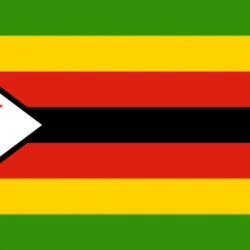
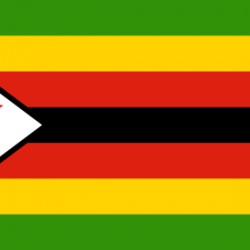
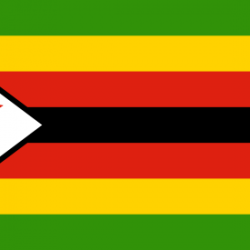
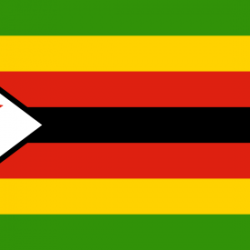
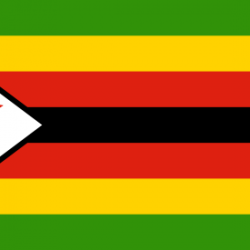
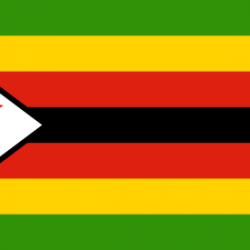
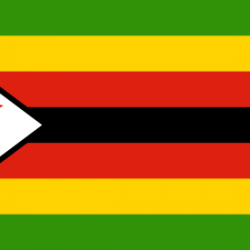
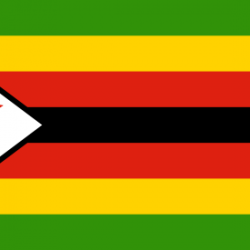
 We will not leak your personal information
We will not leak your personal information